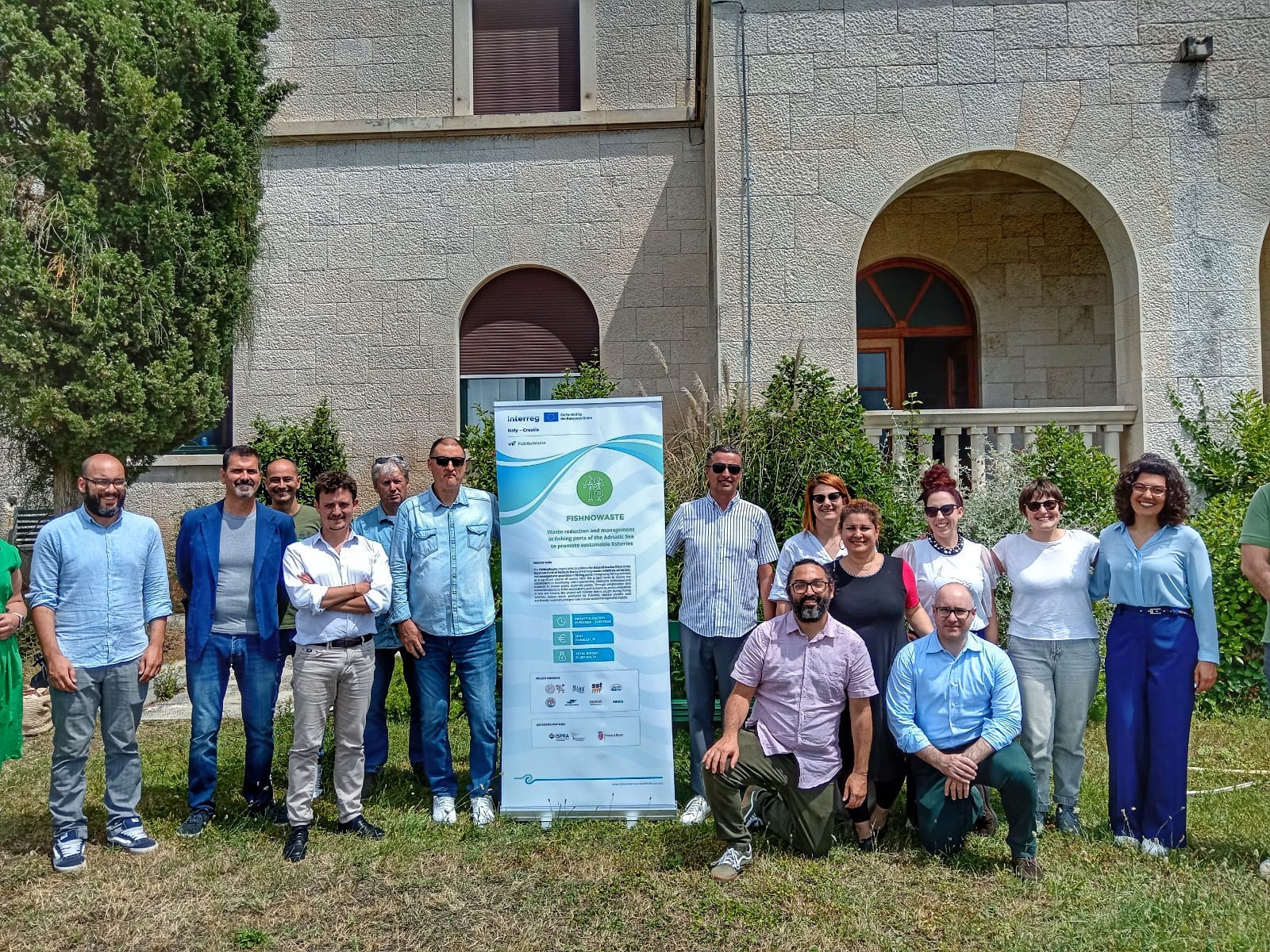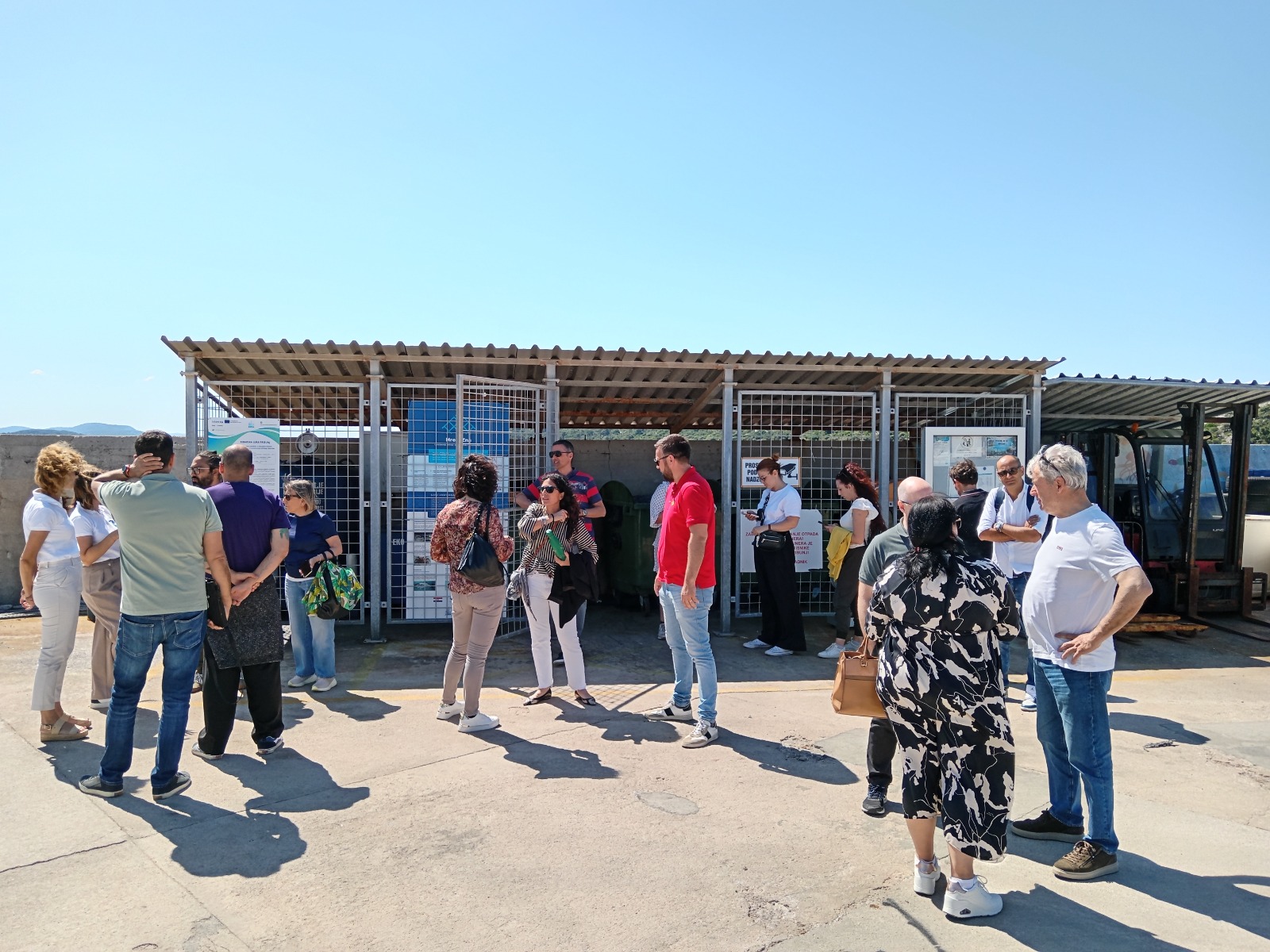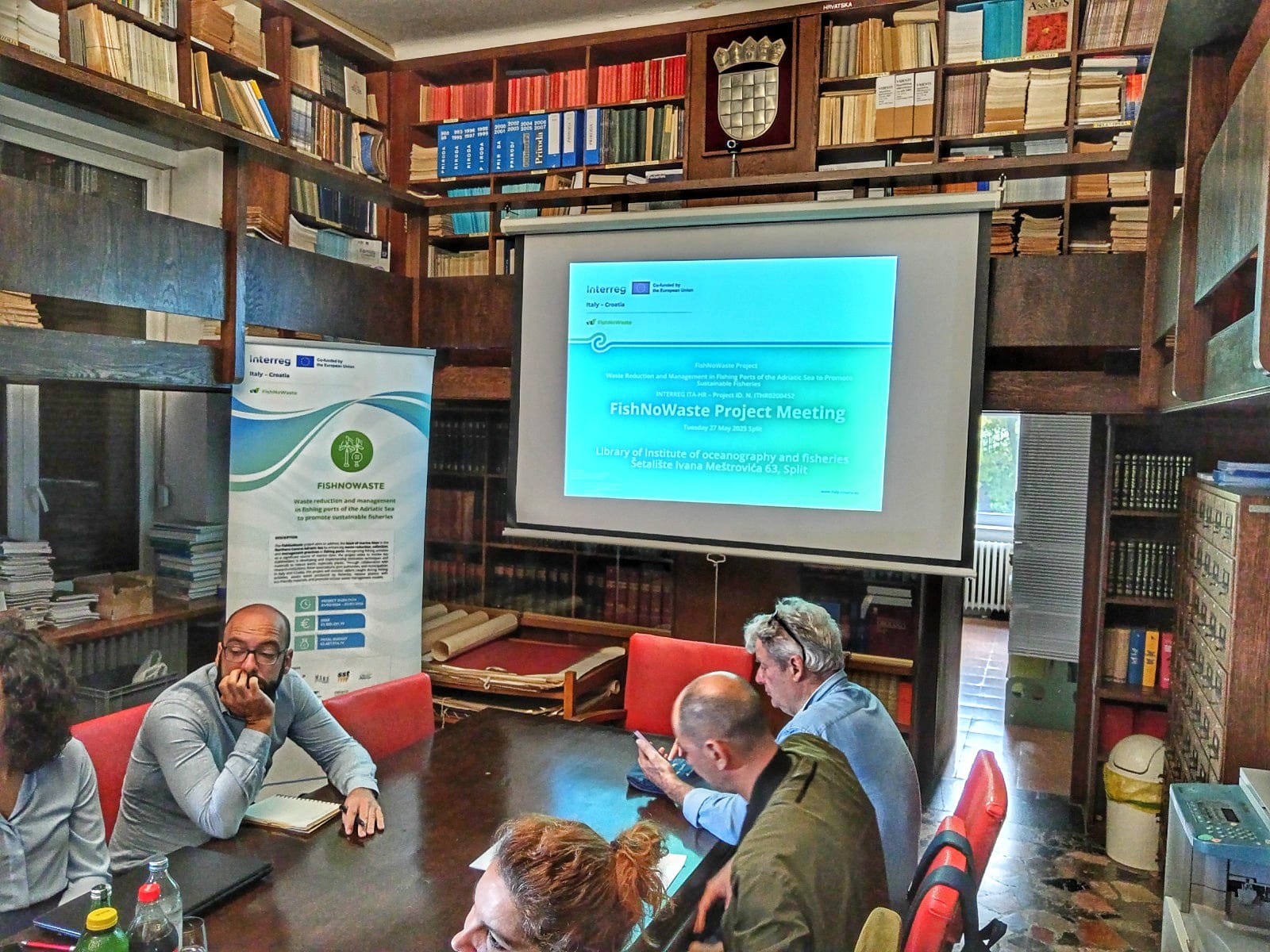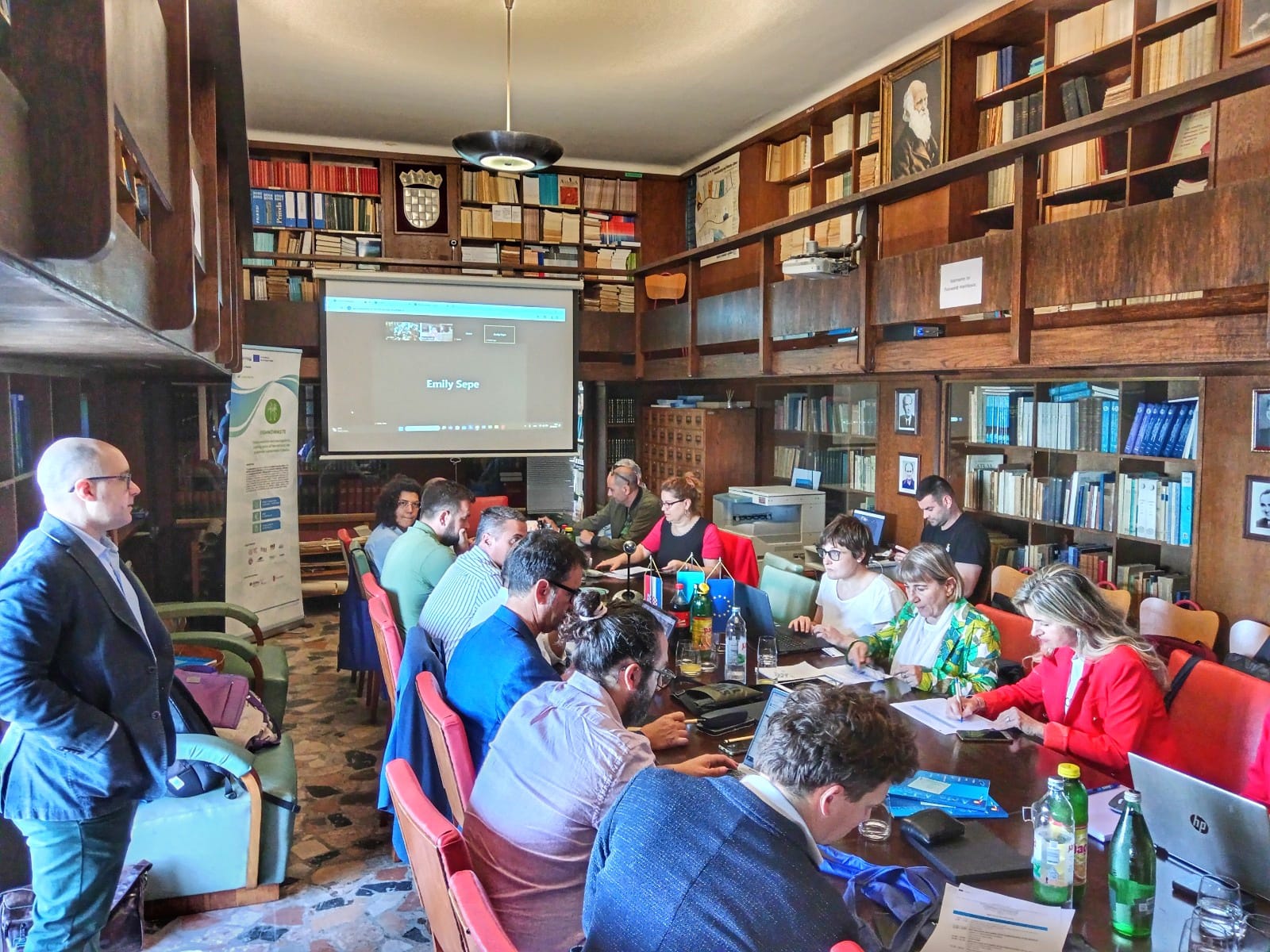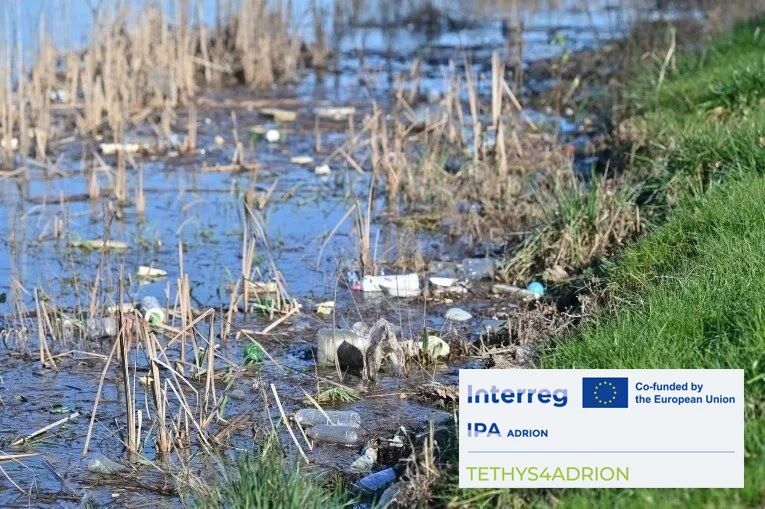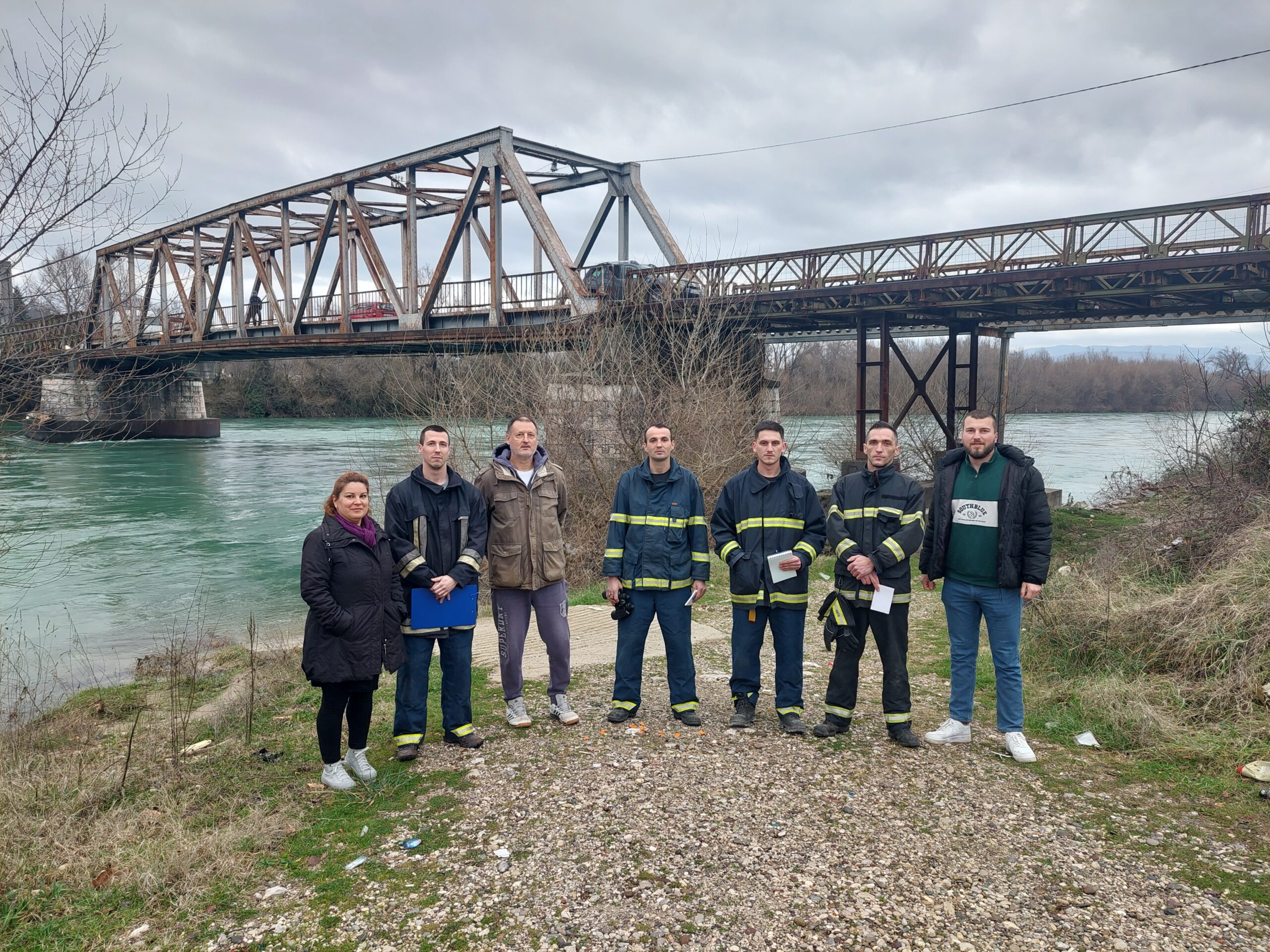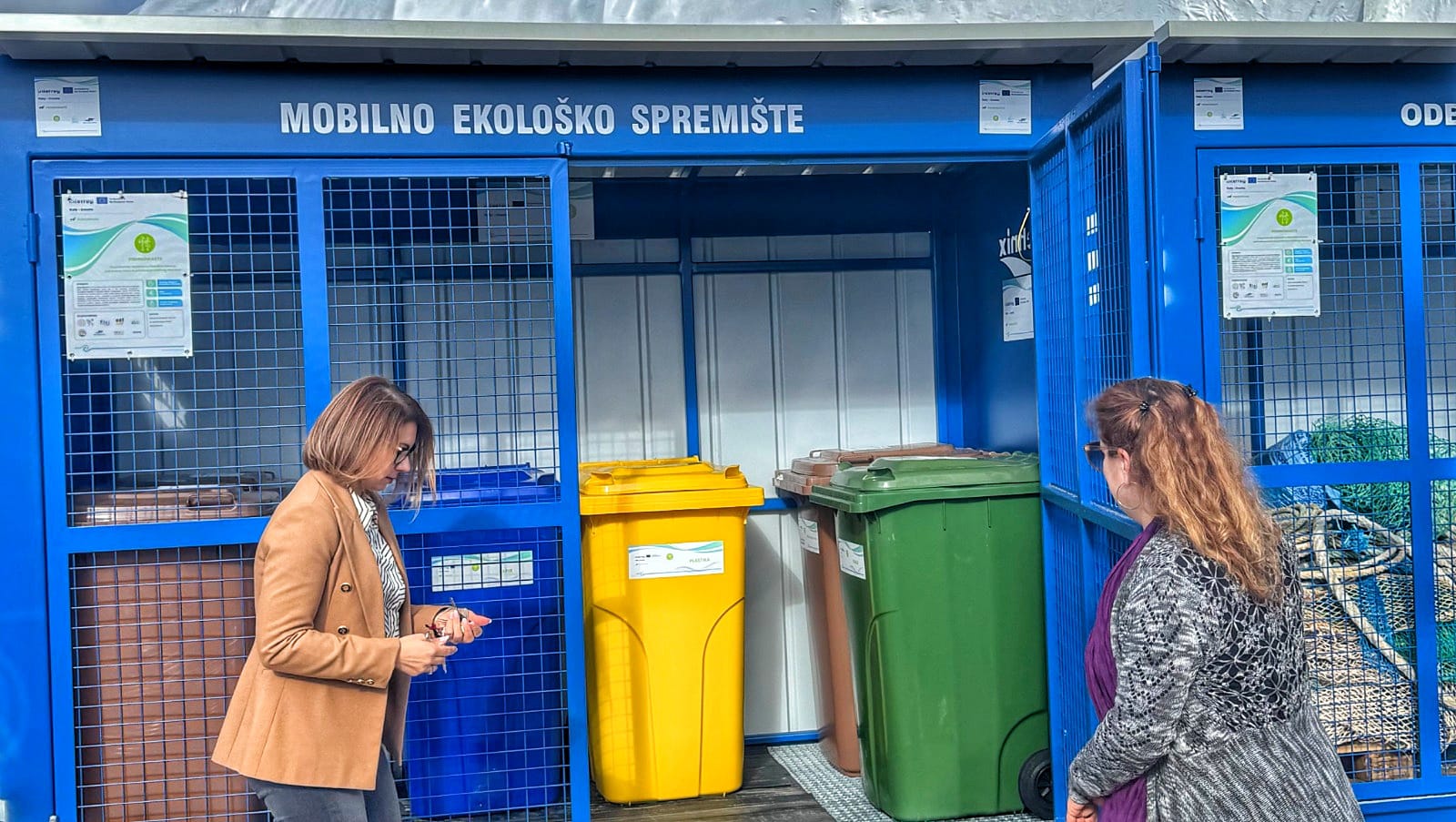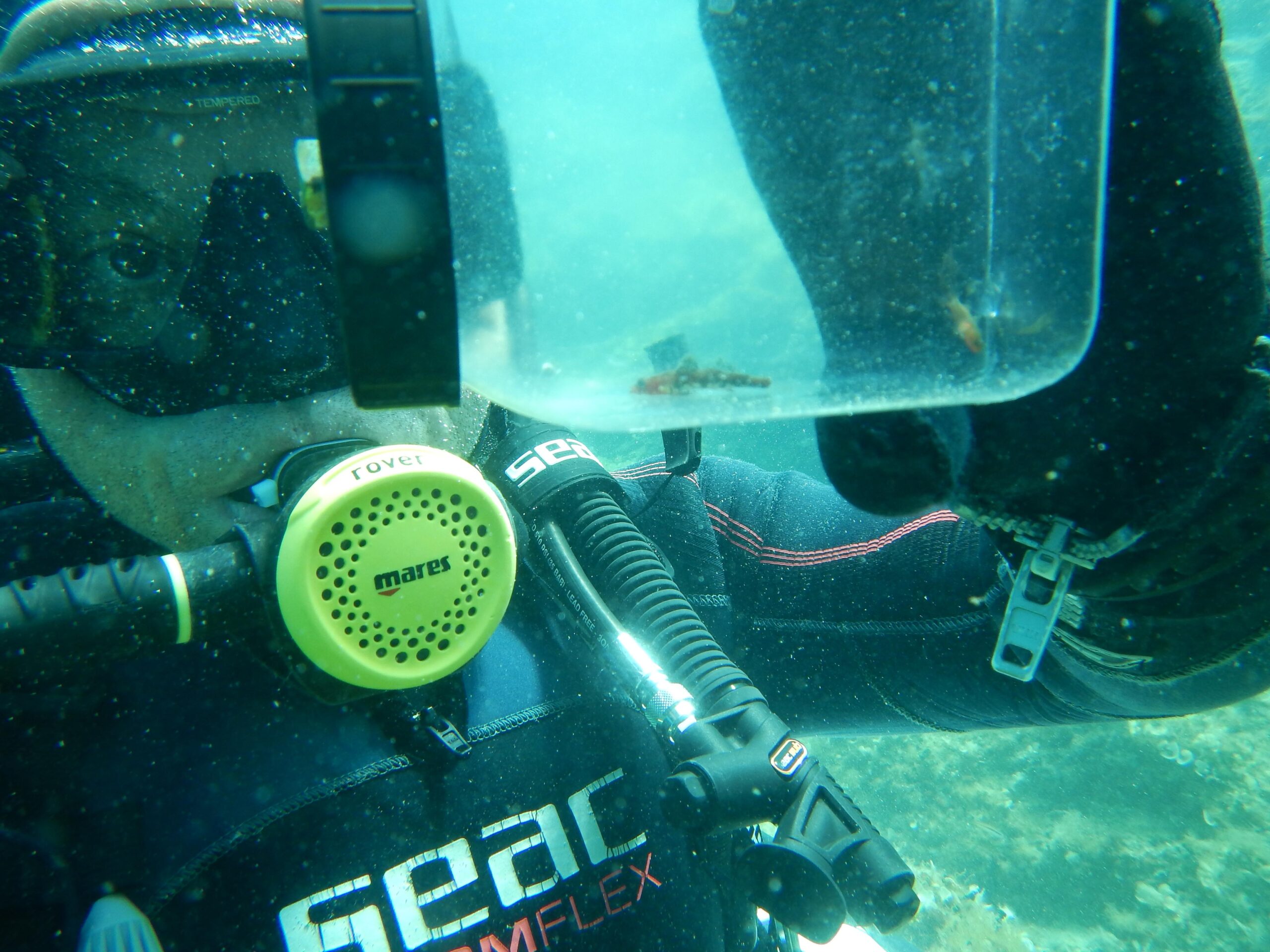From Tuesday, May 27 to Thursday, May 29, 2025, a three-day meeting of FishNoWaste project partners was held in Split, Tribunj, and Brižine (Kaštel Sućurac). The project is officially titled Waste reduction and management in fishing ports of the Adriatic Sea to promote sustainable fisheries, or in Croatian, Gospodarenje otpadom u ribarskim lukama Jadranskog mora za promicanje održivog ribarstva.
On the first day, May 27, the third project working meeting on waste management in fishing ports was held at the library of the Institute of Oceanography and Fisheries. Partners discussed ongoing and planned activities within the project work packages, reviewed the progress of implementation, and planned future steps.
On the second day, May 28, the Advisory Board meeting was held in Tribunj, bringing together project partners, representatives of fishers and fishing organizations, fishing port and market managers, and representatives of local, regional, and national authorities, as well as other technical stakeholders from Croatia and Italy.
The meeting began with a warm welcome from the Mayor of Tribunj, Mr. Marko Grubelić, who expressed his satisfaction that Tribunj was hosting this important gathering and emphasized the municipality’s support for activities aimed at protecting the marine environment and strengthening cooperation between local governments, fishing cooperatives, and scientific institutions from Croatia and Italy.
As part of the meeting, a comparative analysis of waste management in fishing ports in Croatia and Italy was presented, with a focus on regulatory frameworks, waste separation, recycling and disposal practices, and the involvement of local stakeholders. Financial, logistical, and infrastructural challenges were discussed, with special emphasis on raising environmental awareness and the need for joint solutions.
Participants visited the fishing port in Tribunj, one of the project’s pilot sites, where representatives of the Adria Fishing Cooperative presented their waste management practices and the challenges they face. After the visit, partners toured the GastroshopAdria, where they had the opportunity to taste products from Adria and local family farms.
On the third day, May 29, the partners visited the fishing port in Brižine (Kaštel Sućurac), the second Croatian pilot site in the project. Hosts from the Friška riba Fishing Cooperative, which manages the port under concession, presented the specific features of the local waste management system and the challenges encountered on-site.
The FishNoWaste project is funded by the Interreg Italy–Croatia 2021–2027 cross-border cooperation program, under the program priority “A green and resilient shared environment” and the specific objective “Enhancing protection and preservation of nature, biodiversity and green infrastructure, including in urban areas, and reducing all forms of pollution.” The project runs for 30 months starting from February 1, 2024, with a total value of €2,407,914.74.
The project acknowledges that fishing activities produce various types of waste that can end up in the sea, but also recognizes that the fisheries sector has the potential to play an active role in reducing it. Due to its enclosed nature, the economic significance of fisheries, and the high number of fishing ports, the Adriatic Sea is particularly vulnerable to pollution from fishing-related waste.
FishNoWaste aims to develop strategies for the efficient collection of waste generated by trawl fisheries and its treatment in fishing ports. By gathering data on the types, quantities, and composition of waste—especially plastics—the project seeks to improve protocols for waste management with a focus on reuse and recycling, and to implement good practices and innovative solutions in cooperation with key stakeholders, including fishers themselves.
The project brings together scientific institutions, fishing associations, fish markets, port authorities, state and local governments, and NGOs from Croatia and Italy to improve waste monitoring in fisheries, replace plastic materials with eco-friendly alternatives, develop circular economy models, and carry out information campaigns to advise and shape effective policies.
The overall goal of the project is to contribute to a greener and more resilient Adriatic ecosystem shared by Croatia and Italy, and to improve the protection of nature, biodiversity, and green infrastructure while reducing pollution.
The project’s specific objectives include collecting data on current practices and challenges in waste management in fishing ports, identifying the quantity and type of marine litter, designing and testing joint waste management models that involve reuse and recycling, raising stakeholder awareness of responsible waste handling, and developing policies based on the circular economy.
Project activities include analyzing the current situation and problems in fishing ports, developing and testing joint waste management models, pilot implementation in two Croatian and two Italian ports, educating fishers and the public on sustainable waste management, and implementing educational programs in high schools and universities.
Pilot activities in Croatia are being carried out in the fishing port of Tribunj (in cooperation with the Institute of Oceanography and Fisheries and the Adria Fishing Cooperative) and in the port of Brižine near Kaštel Sućurac (in cooperation with the Port Authority of Split and the Friška riba Fishing Cooperative). All fishing vessels from the port of Tribunj are participating in the project, and we extend our sincere thanks to them for their collaboration.
The project is led by the University of Padua with the associated partner ISPRA (Italian National Institute for Environmental Protection and Research). Other Italian partners include Cooperative MARE with the associated partner Municipality of Rimini, the Company for Public Services of Chioggia, and the Workers of the Sea Cooperative.
On the Croatian side, partners include the Institute of Oceanography and Fisheries, the Public Institution RERA SD for coordination and development, the Sunce Association, and the Port Authority of Split.
